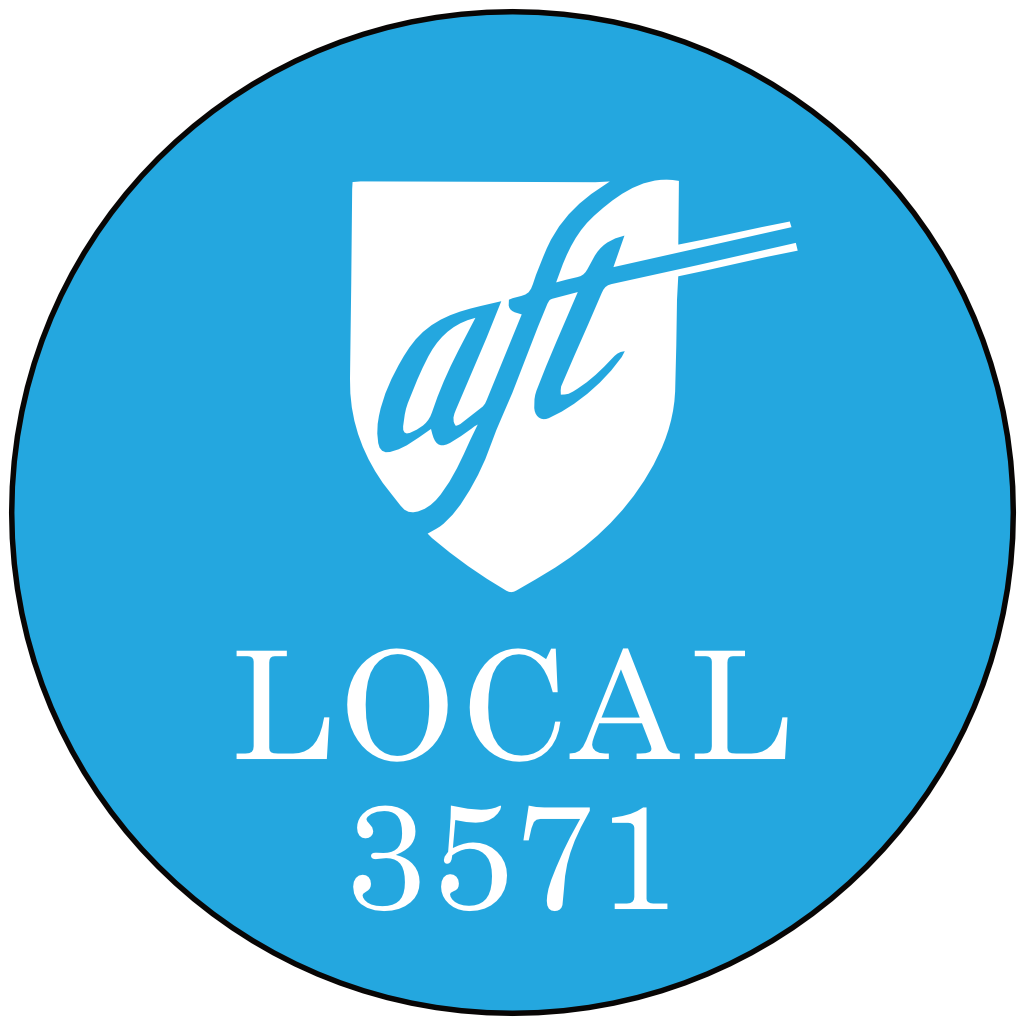Higher Ed Labor Summit: Building a Movement to Transform U.S. Higher Education Vision Platform
We envision a future in which higher education is treated and funded as a social good and universal right. We envision a U.S. higher education system that works for and is led by workers, students, and the communities it serves. We envision a system that secures our nation’s democratic future and serves as a vehicle for addressing inequities.
We envision public and nonprofit private institutions of higher education that prioritize people and the common good over profit and prestige. We envision institutions that redress systemic oppression and pursue equity along lines of race, gender, class, sexuality, nationality, indigeneity, age, (dis)ability, and immigration status for students and higher ed workers across all job categories. We envision institutions that honor the right of all workers to organize a union and collectively bargain, and commit to the fair working conditions crucial to achieving our educational mission.
We envision a higher education labor movement that connects workers across job categories, ranks, systems, states, and sectors. We envision a movement that forms coalitions of and builds democratic power for all workers.
The Challenges We Face
For decades, our state systems and their institutions, working conditions, and learning environments have been compromised by public disinvestment, financialization, corporatization, and a transition to debt financing. Higher education has been underfunded, and management has prioritized generating revenue and allocating funds to divisions that yield the highest return on investment and to upper-administrator compensation.
Workers and students have borne the burden of these structural shifts. All categories of faculty, professional and service staff, and student jobs have been cut, narrowed, outsourced, and remade into contingent, at-will positions. At the same time, upper-administrator positions have grown. The majority of faculty (at least 70%) are in adjunct or contingent appointments. This precarity presents a threat to job stability, educational engagement with students, long-term student outcomes, and academic freedom. Expanding faculty and staff contingency disproportionately impacts women and LGBTQIA+ workers, and workers of color. Tenure-track and full-time employment have declined while workers and students pay the price with lower wages, little to no benefits like health insurance and retirement, and rising tuition and fees. This results in workers and students experiencing the same precarity, leading to increased attrition, faculty turnover, and withdrawals. Higher education institutions have increasingly turned to private lenders, forcing them to prioritize Wall Street and corporate-donor demands over public interests. Students have been transformed into debtors–carrying more than $1.7 trillion in debt today.
Without renewed investments and changes in governance, these crises will worsen.
The Opportunity to Transform Higher Education
Even as we face generational challenges to the integrity and future of our not-for-profit education system in the United States, these colleges and universities function as educational, economic, social, and cultural anchors in communities. So we also see enormous opportunities to reinvest in and restructure the system—which employs more than 6 million people and educates many millions more—along more just and equal lines. To transform U.S. higher education as we envision will take a movement of workers, students, and communities united across union and geographic lines.
Therefore, as local and statewide higher education unions and ally organizations, we make the following commitments to organize for and win a just, equitable system that serves the core public educational mission for which we all strive.
Commitment 1: Nationwide Action for Federal Government Intervention
In order to address these national crises, we call for coordinated nationwide action to move the federal government to:
1. Establish the right to a quality, debtless, universally accessible, and secure higher education for students, workers, and communities, with intentional mandates to increase access and retention for people historically or presently excluded on the basis of race, gender, class, sexuality, nationality, indigeneity, age, (dis)ability, and immigration status.
2. Enact legislation and rules to regularize and stabilize higher education employment on a national scale, and to ensure fair terms and safe work conditions, living wages and steady careers for all faculty, staff, and undergraduate and graduate student workers.
3. Enact legislation to guarantee the right for all higher education workers to organize a union and bargain collectively in every state.
4. Invest in rebuilding higher education across the country and its territories while linking expanded federal funds to consistent and higher labor standards. This funding includes physical, research, healthcare, and human infrastructure that serves our public service mission, and formation of a public finance system to free higher education from depending on private banks for debt financing.
Commitment 2: Nationwide Action to Realign Our Campuses
In order to address our campuses within these national crises, we call for coordinated nationwide action to move our upper administrators and boards to:
1. Engage in collaborative shared governance in which all categories of faculty and staff, student groups, and unions participate at all levels and have decision-making power and key leadership roles, and surrounding communities have avenues to participate in balanced collaborations and partnerships.
2. Align campus and state budgets with educational priorities, and focus on fulfilling the declared education al mission while meeting the direct needs of the faculty, staff, and students who are central to it.
3. Reduce the average ratio of upper-administrator compensation to faculty and staff compensation to an equitable standard.
4. Implement financial transparency by making available to unions and other university stakeholders all relevant financial documents used in the budgeting processes.
5. Categorize student workers as campus employees for pay, healthcare benefits, and collective bargaining rights.
6. Improve the immediate working conditions for all contingent faculty and staff via employment standards that include job security, pay equity, healthcare and retirement benefits, caps on course loads and section sizes, caps on case management and student services loads, safe and harassment-free work environments, collective bargaining rights, and shared governance.
7. End precarious contingent employment and create justly compensated work for all campus workers (full time or part-time):
a. Increase full-time staff density by redefining most current contingent and outsourced staff and service positions as benefitted full-time campus positions; prioritize moving current contingent workers at scale into those positions.
b. Increase tenure density and establish a broad tenure standard for all faculty that recognizes the op tions of teaching tenure, service tenure, and research tenure for current instructors and faculty as well as future hires; prioritize moving current contingent instructors and faculty at scale into these positions; establish job security with stable employment, pay equity, pro-rated benefits, and research access for instructors and faculty who remain non-tenure track.
8. Establish academic freedom for all workers and students as central to the educational mission, which has been undermined by the casualization of labor.
Commitment 3: Action Steps Toward Commitments 1 and 2
We propose nationwide coordination and planning to:
1. Organize to win the College for All Act, including provisions for a pipeline to tenure-track and full-time jobs for current contingent faculty and staff.
2. Organize to win related legislation that increases federal and state funding for higher education, with the goal of eliminating the student cost of attending college while requiring institutions that receive these funds:
a. Provide job security and promotion pipelines for non-instructional staff.
b. Move rapidly and at scale to a supermajority tenure-track teaching and full-time instructional workforce, while guaranteeing job security and seniority for instructors who choose not to participate in tenure.
c. Categorize undergraduate and graduate student workers as campus employees.
d. Provide pay equity and regular raises for all campus workers.
3. Organize to win federal legislation to attach labor provisions to existing mechanisms of federal funding (e.g. National Endowment for the Humanities (NEH), National Institutes of Health (NIH), National Science Foundation (NSF), Pell grants, etc.) to ensure that institutions honor workers’ right to organize a union and bargain collectively in good faith.
4. Pursue federal rule-making with the Departments of Labor and Education regarding categorizations and labor standards for contingent and contract workers, employee status, and job definitions; tie these rules to accreditor recognition criteria and procedures.
5. Organize to win the cancellation of student debt to repair the harm of higher education disinvestment, which has disproportionately impacted black, brown, indigenous, and working-class people.
6. Develop and organize to win federal legislation, campus policies, and where possible state legislation and rules that acknowledge and dismantle the colonization and theft of Indigenous lands; create and fully fund indigenous-led programs to recruit, retain and support Indigenous students and faculty; establish institutional shared governance systems that formally incorporate into decision-making the indigenous peoples upon whose land these campuses sit and benefit from.
7. Organize to win federal legislation, campus policies, and where possible state legislation and rules that address reparations for historical and ongoing systemic oppression and inequities, including fundamental changes to campus policing, as part of a commitment to building civil rights unionism and solidarity with the Black Lives Matter movement.
8. Organize to win federal legislation, campus policies, and where possible state legislation and rules that require our institutions to divest from fossil fuels and invest in green construction, renewable energy, and the end of single-use plastics.
Commitment 4: A Unified National Movement
We commit to work and build solidarity together to fight in our communities and across the country and its territories as a true coordinated higher education labor movement to transform our systems and our lives.













